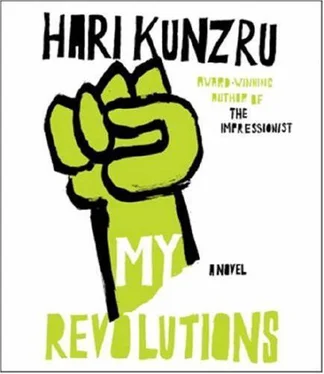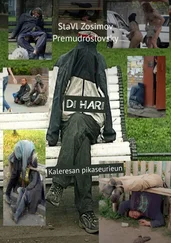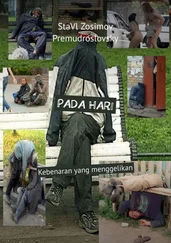I crest the col and see that the tower is illuminated, its blocky form like a lighthouse guiding me in. I bump my way over the cobbles into the main square, where I park in front of the church, on the spot where the righteous Christian knights burned the heretics on their pyre. Miranda: Why should I care what happened here?. . It’s just a pretty little village square on a very hot day . Well, it’s cold now, the air whipping round me in icy gusts as I get out of the car and stretch, trying to work the cramp of two days’ driving out of my body. Though there’s a light in the Bar des Sports, the door is locked and no one answers when I knock. I had some idea of getting a drink, perhaps a sandwich. Now that I’m here I don’t know what to do. I fish a sweater out of my bag and walk around, feeling the blood gradually returning to my legs. I peer up at the looming frontage of the church, with its massive bolted wooden doors; I run my hands over the cold lip of the drinking fountain, a carved stone bowl with a copper spout, dribbling away in front of the mairie . Finally I force myself to head up the steep street that leads to the tower. The houses are mute, shuttered; there’s not a radio, not a chink of light to indicate occupation. I can’t remember which of the line of identical doors is Anna’s and something in me recoils from the idea of knocking. When I see her, it ought to be in daylight, so there can be no mistake, no misrecognition. As I hesitate, a cat emerges from the shadows. I watch it stalk down the hill, the only sign of life in a
scene as desolate and hermetic as a de Chirico piazza. Inevitably, I end up climbing toward the tower, wreathed in a jaundiced yellow glow at the summit of the hill.
After my trip to London I didn’t hear from Miles for a long time. It seemed that Pat Ellis had decided to comply with the demands of her “stakeholders,” whoever they were.
At home things had reached a new low. I’d given up hiding my drinking and sometimes brought home bottles of wine to nurse in the study or in front of the TV. Miranda didn’t comment; she’d more or less stopped speaking to me. We moved around the house in a strange silent dance, trying as far as possible to stay in separate rooms. At God’s, I leafed through old pamphlets and thought with increasing regularity about heroin. I’d noticed a drop-in center near the leisure park, a nondescript building where the county Drug and Alcohol Services ran a methadone clinic. Two or three shell-suited men were always leaning against the wall outside, slouching in the unmistakable lizard posture of dealers. It would take half an hour at most to score and make it back to God’s. I could sit and smoke and think without having to care about what I was thinking. If the dealers at the drop-in center couldn’t help me, Portsmouth, a few miles away, was teeming with junkies. You saw heroin faces everywhere, shuffling about behind shopping centers, sitting disconsolately on garden walls. No problem scoring in Portsmouth. It was Oblivion-on-Sea.
I kept answering the phone to someone named Carl, who needed to talk to Miranda about business. She’d always take the calls upstairs in the bedroom. As I put down the receiver I’d hear her greet him, an unfamiliar warmth in her voice, a breathiness. Was he her lover? It wouldn’t have surprised me. There were so many secrets between us that one more wouldn’t really have made a difference. I felt happy for her: she deserved someone who could share her ambitions, her hopes for the future. She certainly deserved better than me. Yet this new mystery, this sense of possibilities away from our shared life, suddenly made her seem desirable again. It was like some bad behaviorist joke: me
in the dunce’s cap, salivating on cue. I found myself watching
her as she dressed to go to the office, her trim bottom wiggling
into a pencil skirt, the nape of her neck as she twisted sideways
to brush her hair.
One evening I was in the living room, half watching Pat Ellis
on the news. I had a bottle in front of me on the coffee table, a
Portuguese red that I was trying to make last. Miranda came in
and sat down beside me on the sofa.
“Want one?” I asked, trying to sound playful.
She shrugged. “Why not?”
“Really?”
She nodded. I muted the TV and went to fetch her a glass. She
took a couple of sips and set it down on the coffee table. She looked
very tired. A sudden deep silence fell between us, a mutual ease I
didn’t want to break.
“How was London?”
“Fine. Busy.”
“I can’t remember who you were meeting.”
“No reason for you to remember. Someone was showing me
retail units.”
“Retail?”
“I haven’t decided yet, but I think we’ll open a little boutique.
Somewhere to showcase the new range.”
“That’s a big step.”
“Not so big. Not since the investors came on board.”
“Where would it be?”
“I was thinking King’s Road, but Carl says Notting Hill would
be better.”
“So was it Carl who was showing you the shop?”
“Carl Palmer. I’ve told you about him.”
“No, I don’t think so.”
“He’s in property. He’s been very helpful.”
“He rings here a lot, your Carl Palmer.”
She looked defiant. “Does he?”
I held up my hands. “Forget it. Sorry.”
Anger and hopelessness played over her face. She took a deliberate gulp of her wine. “We’ve got a lot to sort out, Mike. But let’s not get into accusations. Not when we’re actually having a nice time.”
“You’re right.”
“Look, why don’t we go out for once? I feel like I’m suffocating.”
We drove to a Greek restaurant where we treated each other with such care and formality that we eventually made ourselves laugh. Carl Palmer was with us at the table, floating beside Anna Addison, balancing her, giving our conversation the brittle lightness that comes when two people are colluding with each other, working hard on the deferral of pain.
The next morning we woke up wrapped round each other in bed. Miranda smiled at me warily. We had a truce. It was soon afterward that she first mentioned the idea of a birthday party.
October from the study window: Miranda brutally stabbing at the garden with a trowel. February brought her a reward of daffodils, great clumps of them lining the beds, paper-white and sunshine-yellow. I spent hours at my desk, the desk I didn’t use for anything anymore, watching them quiver in the rain. In the evenings I followed Pat Ellis on the news. There she was, nine months into the new era, standing beside her leader wearing a scarlet jacket and an optimistic smile, like some kind of political redcoat. There she was, surrounded by hand-picked representatives of the topic of the day, addressing the concerns of Junior Police Officers or Minority Community Representatives or Victims of Antisocial Behavior. Whatever her gang was up to, she was right in the middle of it, retailing euphoria, glad-handing rock stars.
When the telly started spewing pictures of fox hunters pushing policemen in Parliament Square, I laughed so hard I almost fell off the couch. Oh, I was living in a topsy-turvy world all right, a mirror world of flash and spin and graphic design. Politics was just lifestyle. Even the scandals seemed to be about home improvement. Miles’s
taunt came back to me: yes, this was the opposite of carving out a Utopia, the opposite of whatever I’d been fumbling for all those years ago. Thoroughly pragmatic, blandly ruthless, always up for a cocktail party. The bloody prime minister was five years younger than me, whichever birthday I counted from.
Then the Home Secretary got himself in a pickle over immigration and the pundits started mentioning Pat Ellis as the coming woman. One day I was half listening to the radio at God’s, watching that rare thing, an actual customer, scanning the poetry section, when I realized Pat was talking in my ear. It had long been her belief, it transpired, that the end of the Cold War necessitated a change of focus in Britain’s intelligence services. She buried it in jargon, smoothing the edges with euphemism and talking with great seriousness about people trafficking and animal rights activists and other contemporary threats to state security, but the underlying message was a budget cut, a reduction of influence for the spooks.
Читать дальше












